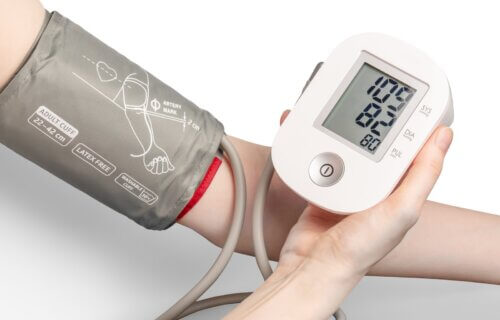COLUMBUS, Ohio — Less than half of the population is aware of their own blood pressure, a new study reveals. Researchers from Ohio State reveal that while many adults can recall their childhood address or their best friend’s birthday, fewer than half know anything about their blood pressure readings or ideal weight. Moreover, fewer than one in five people know their cholesterol or blood sugar levels.
The research involved questioning over 1,000 American adults about their awareness of their blood pressure, ideal weight, cholesterol, and blood sugar levels. Conducted by researchers at The Ohio State University, the team aimed to highlight the importance of monitoring these health metrics to identify risk factors for heart disease.
Findings showed that the highest percentage of respondents (44%) knew their ideal weight (as measured by body mass index), while only 16 percent were aware of their cholesterol levels. Moreover, just 15 percent knew their blood sugar level. This starkly contrasts the 68 percent who remembered their childhood address and the 58 percent who knew their best friend’s birthday.
“Recognizing heart disease risk factors early and adequately treating them can potentially prevent heart attacks, strokes and heart failure. As a society, we need to shift from sick care to preventative care so people can live their best and fullest lives possible,” says Laxmi Mehta, MD, director of Preventative Cardiology and Women’s Cardiovascular Health at the Ohio State University Wexner Medical Center, in a media release.
The survey revealed that although many Americans are not able to recall their vital numbers from memory, they do undergo regular health screenings. The majority reported having their blood pressure and heart rate checked within the past year and their blood sugar and cholesterol levels tested within the last five years.

Researchers emphasized the significance of not only having these health metrics checked but also remembering and comprehending their implications.
“Most people can get screened at their physician’s office or, if they don’t have one, there are free health screening fairs as well as blood pressure machines at pharmacies,” adds Mehta, who is also the Sarah Ross Soter Endowed Chair in Women’s Cardiovascular Health Research.
“It’s important to not only know your numbers but be proactive with medication and lifestyle changes like diet and exercise. When you visit your doctor, ask what your numbers are for blood pressure, cholesterol and blood sugar and what a normal range is for you. Discuss your sleep habits along with diet, exercise, smoking and alcohol use. Also, none of us like to talk about our own weight but it’s an important conversation because being overweight is a risk factor for heart disease.”
For reference, healthy blood pressure numbers are under 120 mm Hg for the top blood pressure number (systolic blood pressure) and under 80 mm Hg for the bottom number (diastolic blood pressure). The researchers also note that it’s important to be aware of your family’s medical history, as many conditions that affect your vital signs can be genetic.
“It’s also important to know your family’s health history and discuss it with your doctor. There could be risk factors that require medication or lifestyle changes and the earlier they’re known, the better. Sometimes people have heart attacks or strokes because their blood pressure or cholesterol levels are really high and they never had them checked,” Mehta says.
The researchers highlight the case study of Erica Hutson, a 37-year-old from Plain City, Ohio, who discovered she had high cholesterol during her 20s through a health screening mandated by her insurance.
Despite being young and physically fit, she initially chose not to address her high cholesterol for 10 years. Her perspective shifted dramatically following her father’s death from coronary artery disease in his 60s, coupled with the realization that the condition was hereditary in her family.
Upon consulting with doctors, Hutson was prescribed cholesterol medication and began administering self-injected shots at home. As a result, her cholesterol levels returned to a healthy range.
“It’s really important to know what your numbers are, what they mean and consult with your doctor. You need to know what your family history is on both sides so you can give that information to your children and all family members can be prepared to do what it takes to stay healthy,” Hutson says.
“His death really made me think about things and put my life into a whole different perspective.”
Survey Methodology
This study was conducted on behalf of The Ohio State University Wexner Medical Center by SSRS on its Opinion Panel Omnibus platform. The SSRS Opinion Panel Omnibus is a national, twice-per-month, probability-based survey. Data collection was conducted from Dec. 15-17, 2023 among a sample of 1,010 respondents. The survey was conducted via web (n=980) and telephone (n=30) and administered in English. The margin of error for total respondents is +/- 3.7 percentage points at the 95% confidence level. All SSRS Opinion Panel Omnibus data are weighted to represent the target population of U.S. adults ages 18 or older.
South West News Service writer Isobel Williams contributed to this report.
